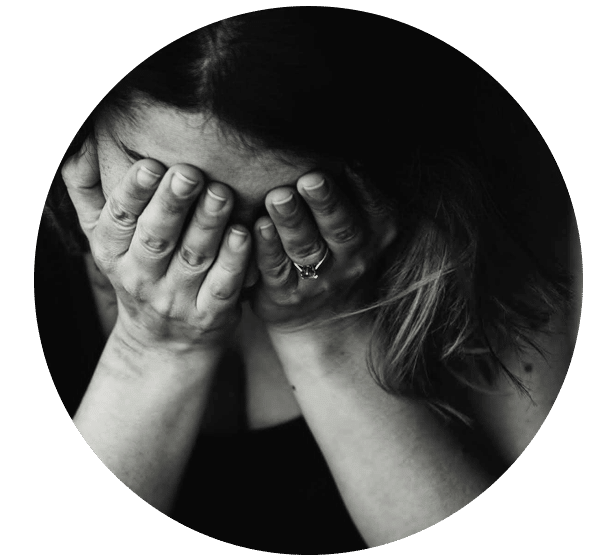If you take benzodiazepines (benzos) regularly, even as prescribed, you may become psychologically or physically dependent on them. When you cut down or stop taking benzodiazepines, it could lead to withdrawal. Benzo withdrawal timeline and symptoms can be unpleasant.
Benzodiazepines, such as Valium, Klonopin, and Xanax, are medications doctors prescribe to treat seizures, insomnia, and panic disorders. Some are also used to induce amnesia in surgery. These medications are central nervous system depressants that create a calming effect, providing relief for those struggling with these conditions. People often abuse benzodiazepines recreationally for their calming effect.

What Are Benzodiazepines?
Benzodiazepines, also known as benzos, are a type of psychoactive drug commonly used to treat anxiety disorders, insomnia, and seizures. There are about 15 benzodiazepines approved by the Food and Drug Administration (FDA) in the U.S. The most common types of benzodiazepines include:
- Midazolam (Versed)
- Alprazolam (Xanax)
- Temazepam (Restoril)
- Lorazepam (Ativan)
- Diazepam (Valium)
- Clonazepam (Klonopin)
Benzodiazepines come in different forms such as pills, tablets, or injections and can be prescribed by a doctor for short-term use. However, due to their sedative effects and potential for addiction, they should only be used under close medical supervision.
How Do Benzodiazepines Work?
Benzodiazepines, also known as benzos, are a type of prescription medication commonly used to treat anxiety, insomnia, and seizures. Benzodiazepine medications work by enhancing the effects of a neurotransmitter in the brain called gamma-aminobutyric acid (GABA). GABA is responsible for regulating brain activity and helps to reduce feelings of anxiety and promote relaxation.
When someone takes a benzodiazepine, it binds to specific receptors on nerve cells in the brain that respond to GABA. This binding increases the amount of GABA available and slows down nerve activity. As a result, the person may experience a calming effect, reduced muscle tension, and drowsiness.
Risks of Taking Benzodiazepines
While benzodiazepines can be highly effective in treating certain conditions, they also come with potential risks. One of the biggest concerns is the risk of dependence and addiction. When taken for an extended period or in higher doses than prescribed, the brain can become accustomed to the effects of benzos and may start to rely on them for normal functioning. As a result, individuals may experience withdrawal symptoms when trying to stop taking them.
Benzodiazepine abuse can lead to tolerance, meaning that larger doses are needed to achieve the same desired effects. This can quickly escalate into a dangerous cycle of increasing use, abuse, addiction, and potential overdose.
Signs of Benzodiazepine Dependence
Benzodiazepines are highly addictive. Like other drugs, abusing benzos can lead to significant physical and psychological symptoms, including:
- Building tolerance (Needing to use more of the drug to achieve the same high)
- A strong urge or craving to use benzodiazepines
- Inability to reduce or cut down use
- Continuing to use benzodiazepines despite serious health problems due to use
- Running out of your prescription early
- Feeling like you can’t function without using benzos
- Spending a great deal of time using benzos or recovering from use
- Giving up important activities or hobbies to use
- Experiencing withdrawal symptoms (such as nausea and vomiting) when you try to cut down or stop using
Once physical dependence sets in, withdrawal may occur if you reduce or suddenly stop taking the drug. Withdrawing from benzodiazepines is dangerous and can even be fatal. For your safety, it is crucial to seek medical care and detox under the supervision of healthcare professionals. This ensures you are in safe hands and the process is carefully monitored.
Benzodiazepine Withdrawal Symptoms
More than 40 percent of people taking benzos for more than six months experience withdrawal symptoms when they try to cut down or stop using benzos. Withdrawal symptoms often set in quickly once you quit taking the drug. Symptoms will vary in severity and begin within 24 hours of last use. They may last for several days or a few months. Physical withdrawal symptoms include:
- Confusion
- Headache
- Tremors
- Sweating
- Nausea
- Vomiting
- Stomach cramps
- Muscle cramps
- Seizures
- Dizziness
- Impaired memory
- Fatigue
- Sleep problems
- High blood pressure
- Visual disturbances
- Tachycardia (rapid heartbeat)
- Tonic-clonic (grand mal) seizures
Psychological symptoms:
- Depression
- Anxiety
- Panic attacks
- Insomnia
- Irritability
- Hallucinations
- Psychosis
- Delusions
- Delirium
These symptoms can be potentially dangerous. Therefore, if you are thinking about quitting benzos, seek guidance from an addiction professional to manage benzo withdrawal timeline and symptoms.
The Dangers of Benzodiazepine Withdrawal
It is important only to stop taking benzodiazepines under the supervision of medical professionals. Quitting benzos suddenly can be dangerous, and symptoms can become life-threatening and lead to death — especially if you are also taking other drugs at the same time. In extreme cases, withdrawal from benzodiazepines can cause life-threatening seizures.
If you or a loved one is struggling with benzodiazepine addiction, it is important to seek professional help as soon as possible. A reputable treatment center like Vogue Recovery Center can provide the necessary medical detoxification process to safely manage withdrawal symptoms while also addressing the underlying causes of addiction.
Benzodiazepine Withdrawal Timeline
The benzo withdrawal timeline is not definitive since everyone’s experience is different. The severity of symptoms and timeline is affected by:
- How long you’ve taken benzodiazepines
- Amount (dosage) taken
- The severity of misuse
- Whether you have a valid prescription for benzos or not
- Underlying mental illness or mental health condition
- Using other drugs at the same time
- Whether there is misuse of other drugs and alcohol
- Whether you’ve taken a long-acting (Klonopin) or short-acting benzodiazepine (Versed)
Generally, there are three phases for withdrawal from benzodiazepines, and each has an estimated timeline. Your extent of use, general health, and other factors determine how quickly you progress through these stages. The onset of symptoms may be gradual or intense.
Early (Immediate) Withdrawal
Early withdrawal symptoms often set in quickly after you stop taking benzos, usually within 8 to 12 hours. Symptom duration and severity depend on the half-life of the specific drug (whether it’s short-acting like Xanax or long-acting like Valium).
At this point, you may notice a rebound of anxiety or insomnia if you were using benzos to treat these conditions. If you are detoxing under medical supervision, you may be put on a tapering schedule or given prescription medications to make the process more manageable.
Acute Withdrawal
The majority of withdrawal symptoms will occur during this stage, which typically lasts for up to 28 days. Some people experience these symptoms for a few months. Many believe that acute withdrawal from benzos is the most challenging stage. You may still be under medical supervision at this point if you are detoxing at a treatment facility.
Protracted Withdrawal
Although most symptoms remedy themselves once acute withdrawal is over, some may still linger. Up to 25 percent of heavy users will experience symptoms lasting up to a year. Long-term withdrawal symptoms are also called post-acute withdrawal symptoms (PAWS). These symptoms include:
- Insomnia
- Depression
- Loss of sex drive
- Mood swings
- Anxiety
- Poor Concentration
Symptoms may appear without warning and can greatly affect your quality of life. Professional addiction treatment and additional therapeutic techniques can help you manage them better.
How to Safely Stop Taking Benzodiazepines
Medical detox can help you taper off benzodiazepines in a more manageable manner and allows doctors to intervene more quickly if you develop any severe side effects such as seizures or convulsions. In medical detox, you may receive medications (medication-assisted treatment) to help you through this process. These medications keep you physically safe and prevent dangerous and uncomfortable withdrawal symptoms. During medical detox, nurses can regularly monitor your vitals and comfort levels while a physician assesses your overall health and drug use history.
What Happens After Withdrawal Is Over?
After you complete the medical detox, you will collaborate with your healthcare team to devise a personalized treatment plan. This plan will not only address the root cause of your addiction but also equip you with healthier coping skills. Therapeutic approaches may include:
- Treatment for co-occurring disorders
- Holistic practices like mindfulness and yoga
- Relapse prevention training
- Individual and group therapy
- Cognitive behavioral therapy
- Aftercare planning
Inpatient and outpatient programs are two forms of substance abuse treatment available after medical detox. By selecting the right plan for your circumstances, dedicating yourself to recovery, and receiving support from others, you’ll be in a better position to overcome addiction.
Call Vogue Recovery Center today for a free consultation if you or a loved one is experiencing addiction concerns. It is challenging but not impossible to overcome a cocaine addiction, and you can be well on your way to living a life worth living if you have the right resources and assistance.
Does Insurance Pay for Benzodiazepine Detox and Rehab?
Most major insurance providers cover behavioral health care similarly to medical care, often requiring a deductible, co-insurance, or copay. If you’re unsure about the drug rehab benefits included in your plan, contact our admissions specialists. They will work directly with your insurance company to clarify your coverage details and outline any out-of-pocket expenses for benzodiazepine detox and rehab.
Get Help for Benzo Detox and Addiction Treatment
If you suspect you may have an issue with benzodiazepines, chances are you’re right. Continuing to use a substance despite its harmful effects on your life is a common indicator of addiction. Don’t wait to seek the help you deserve—recovery is possible. If you or someone you care about is struggling, contact us today for a free and confidential consultation.

Medically Reviewed by Kelsey Jones, MS, LPC









